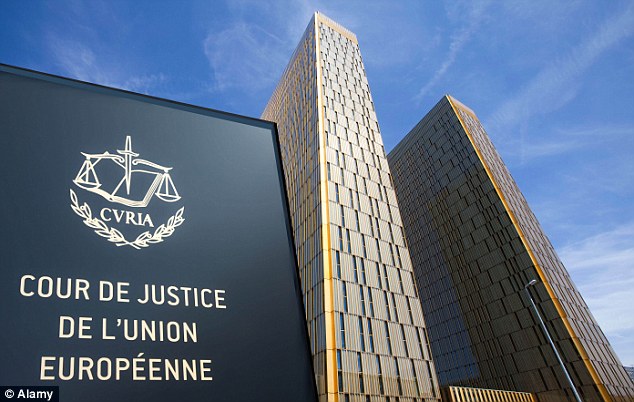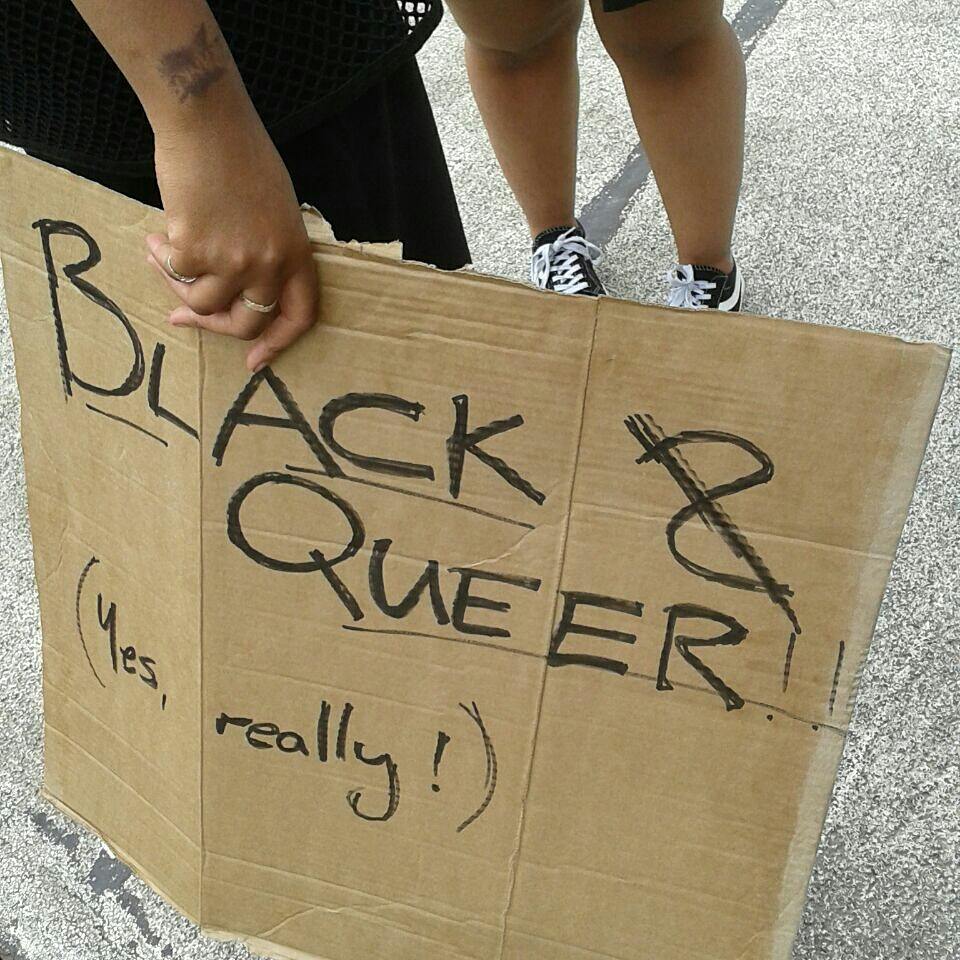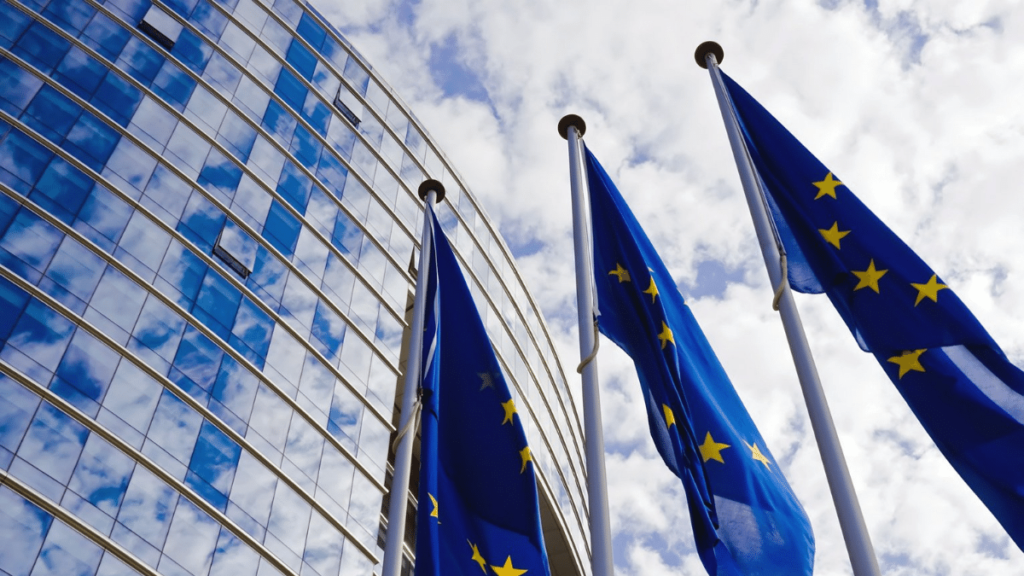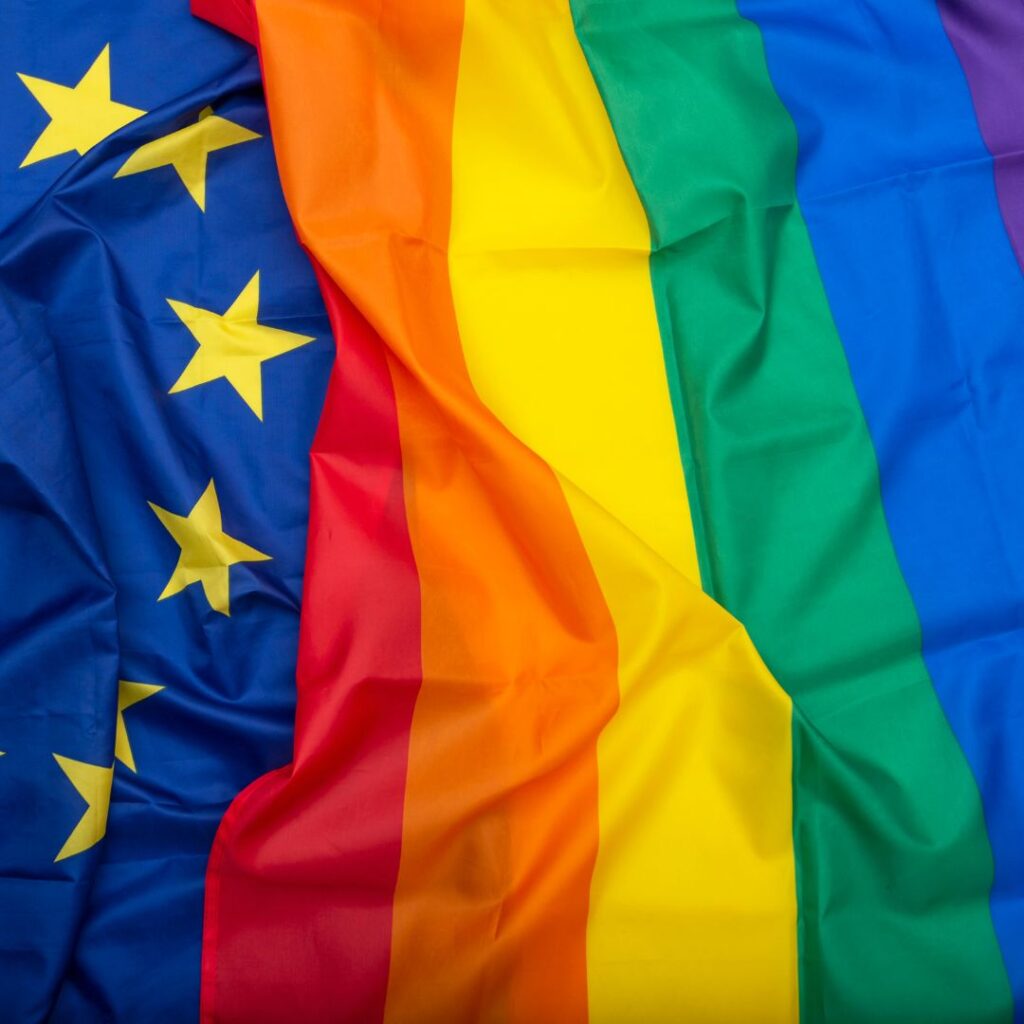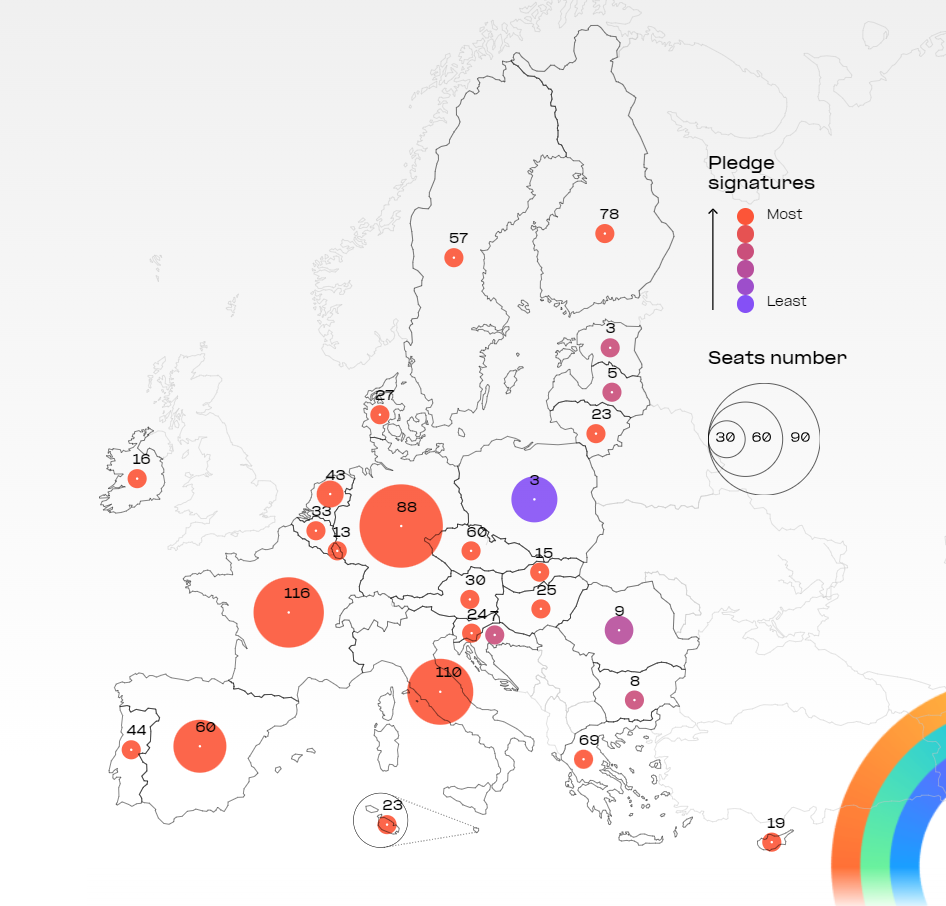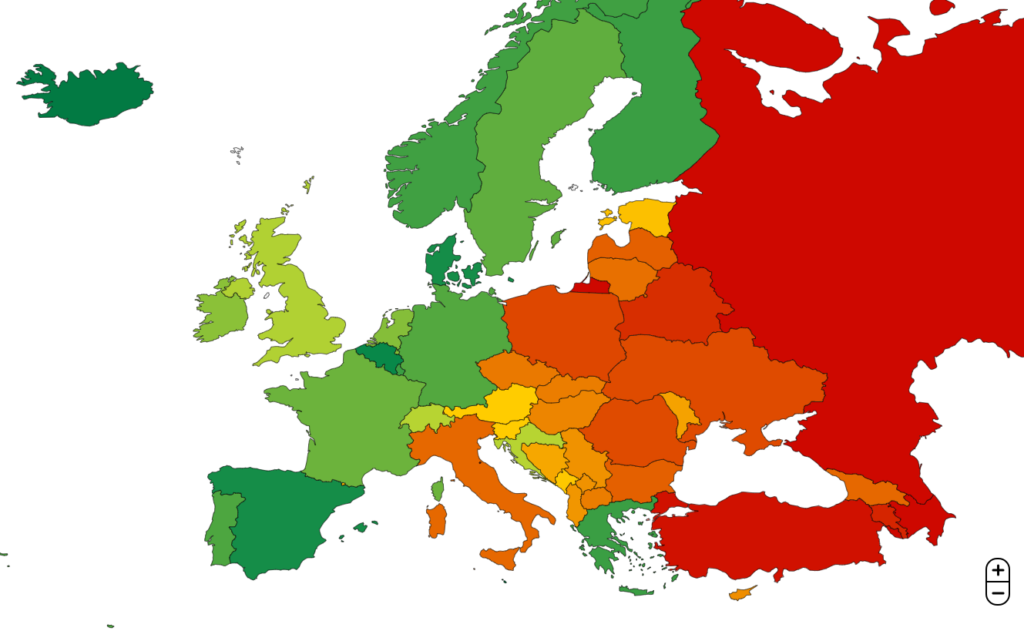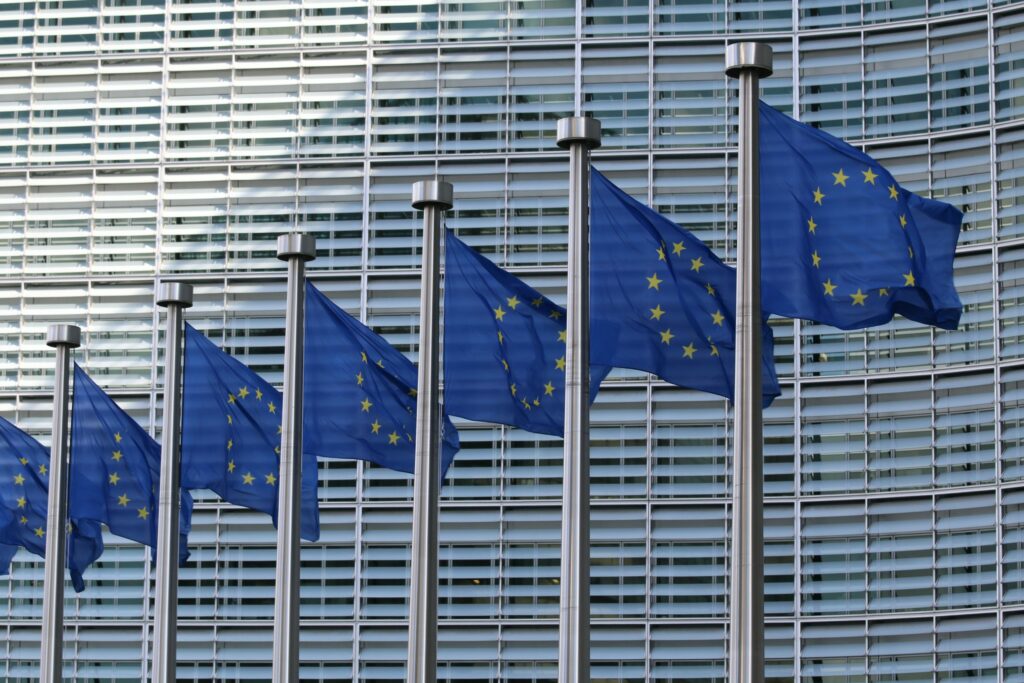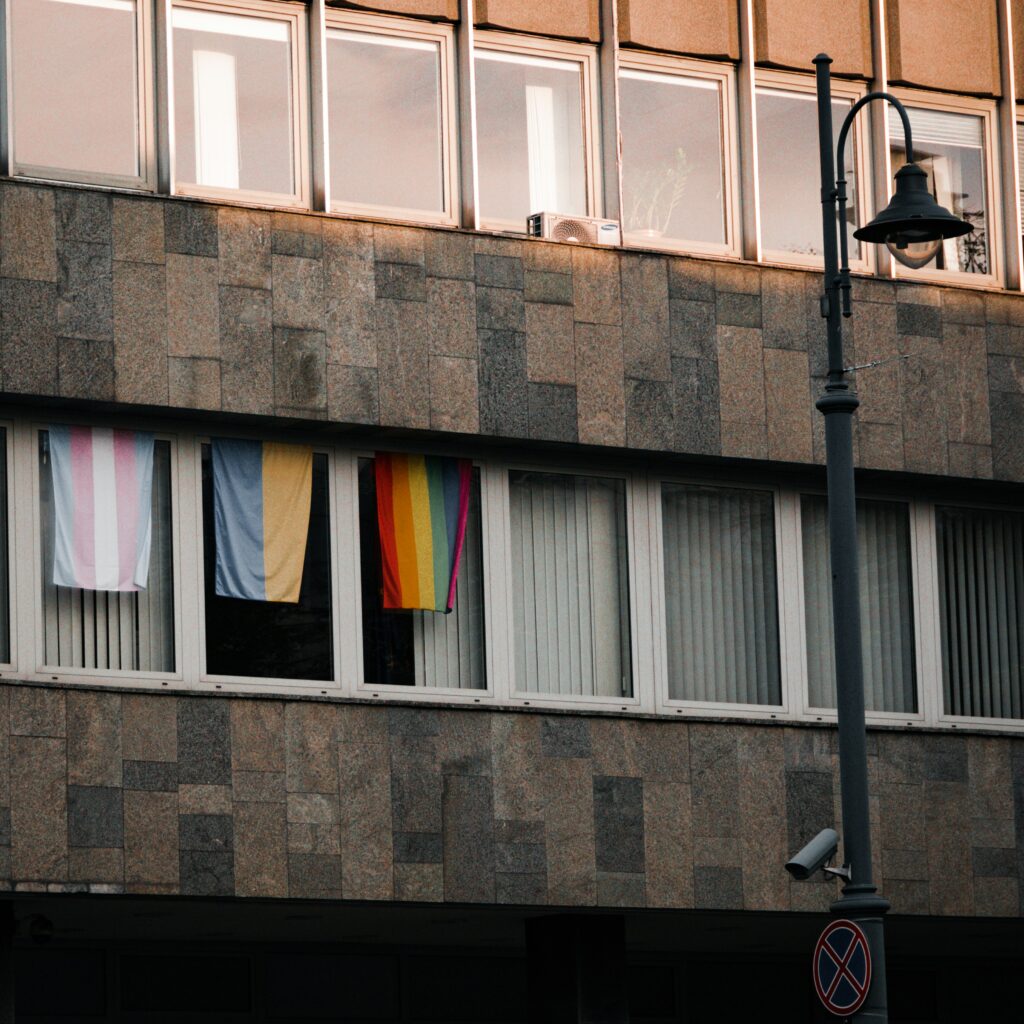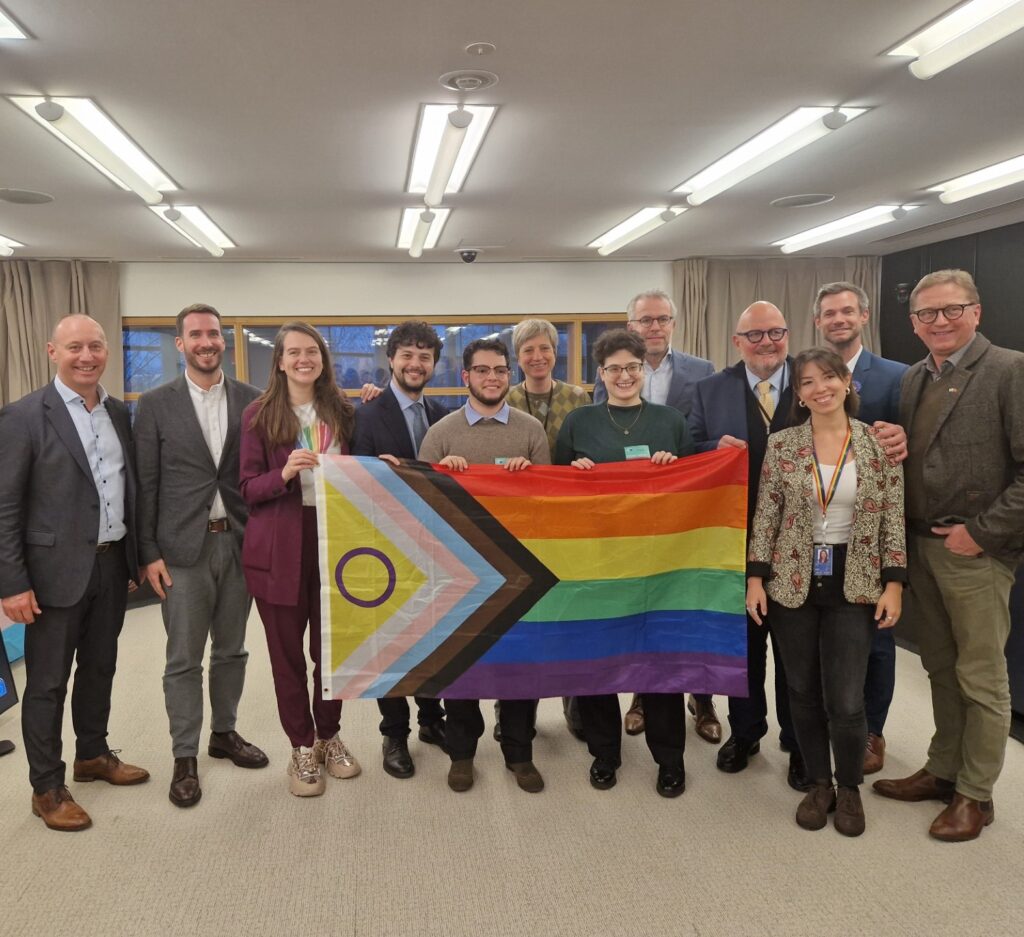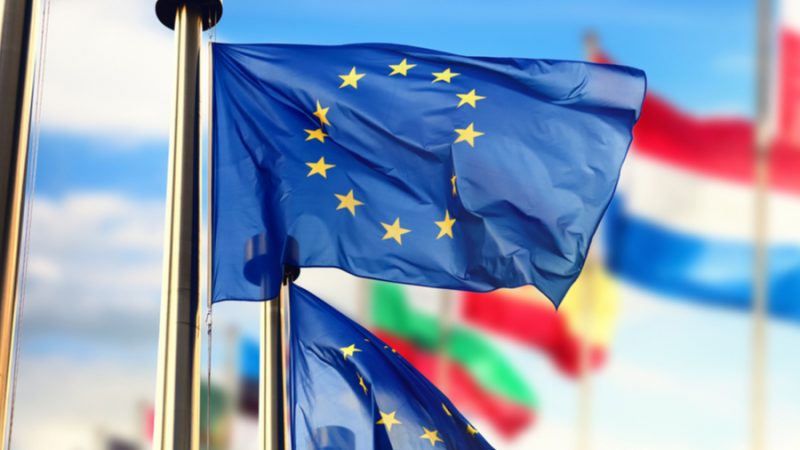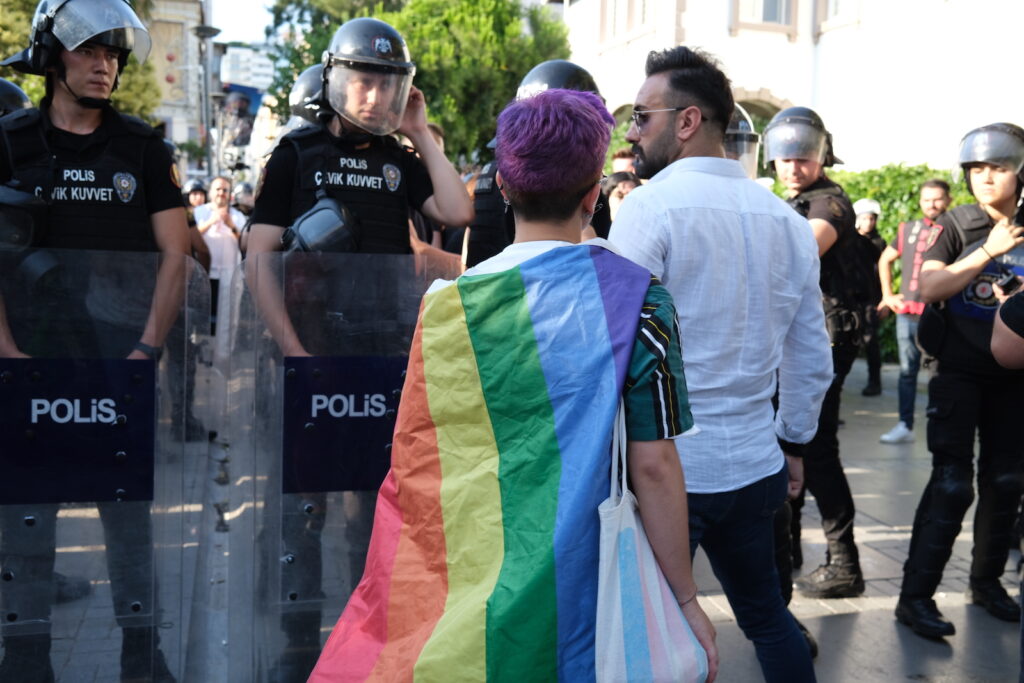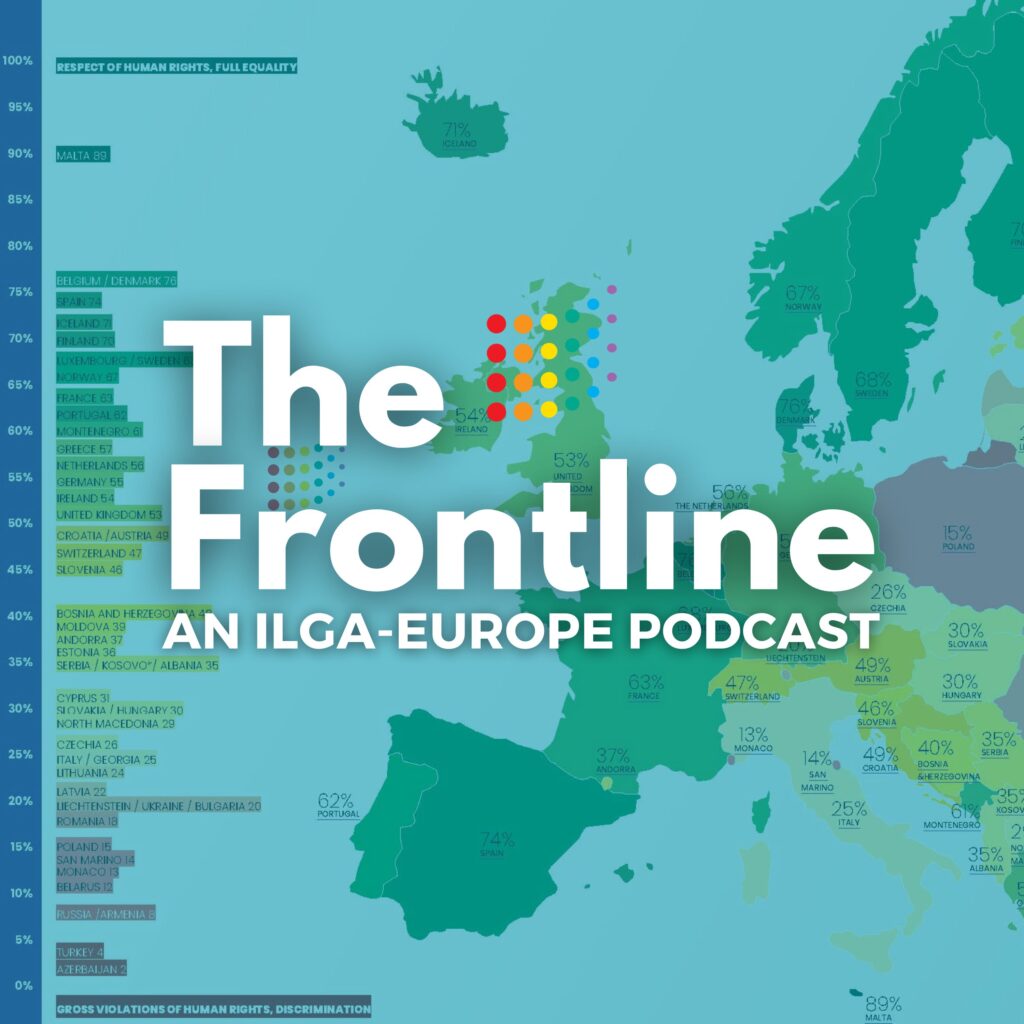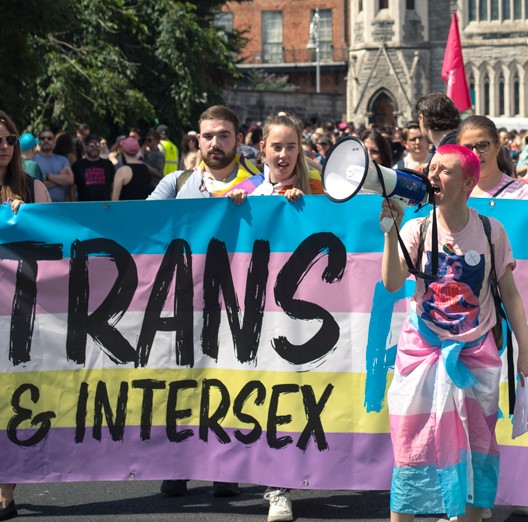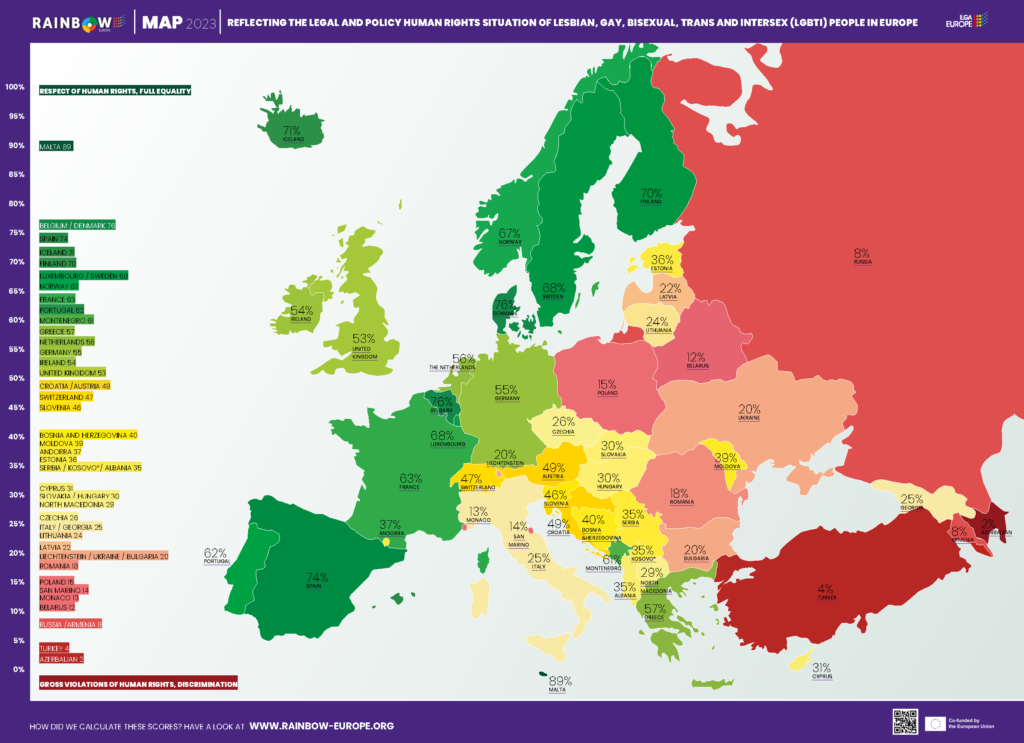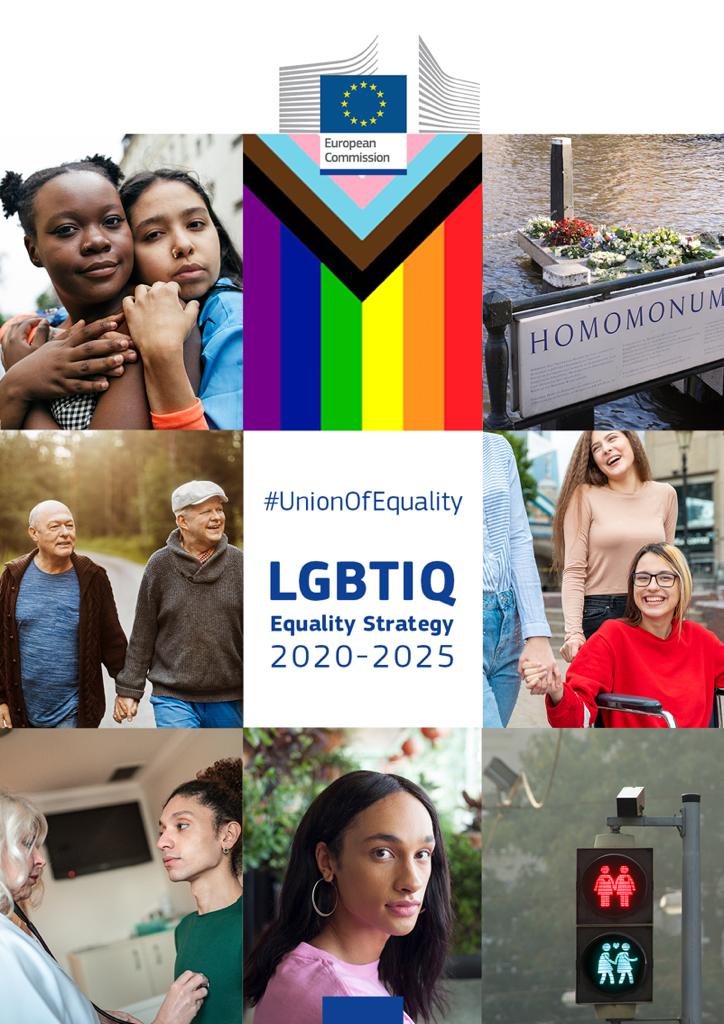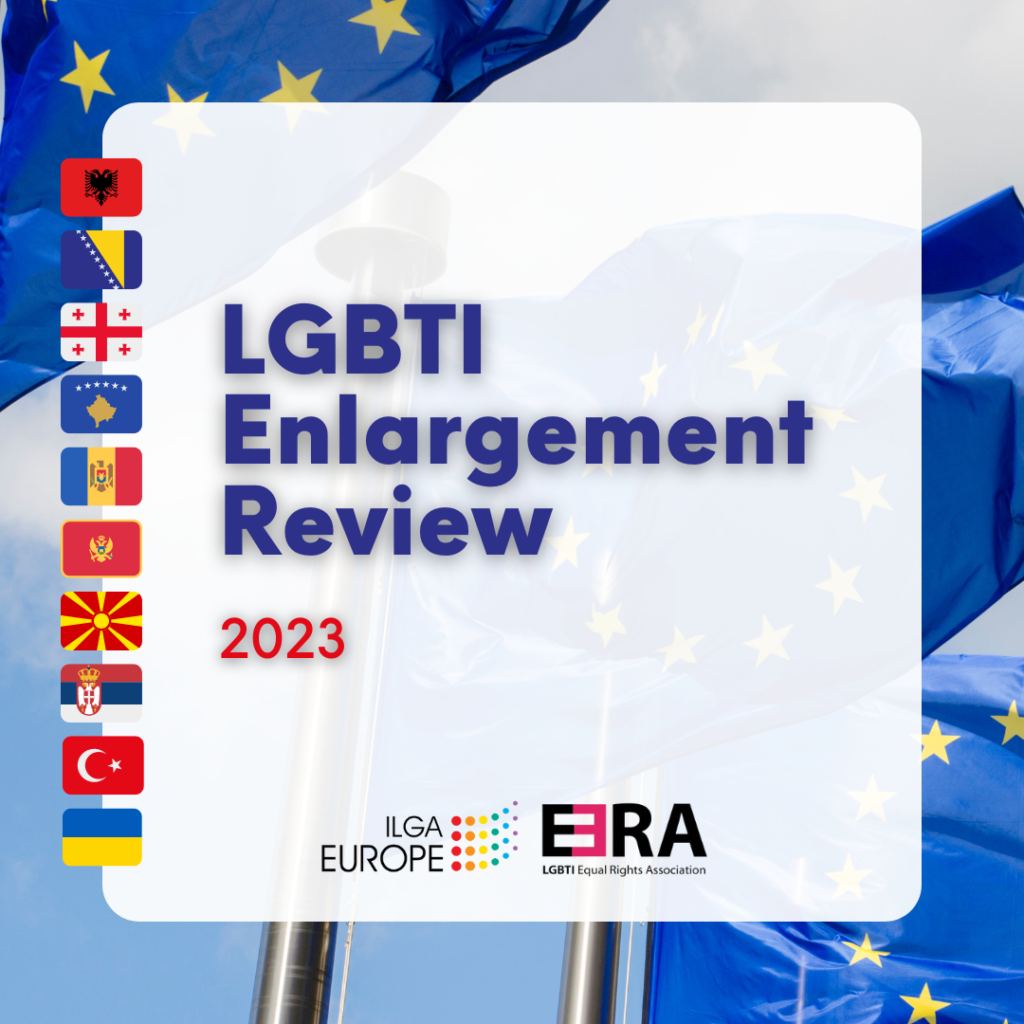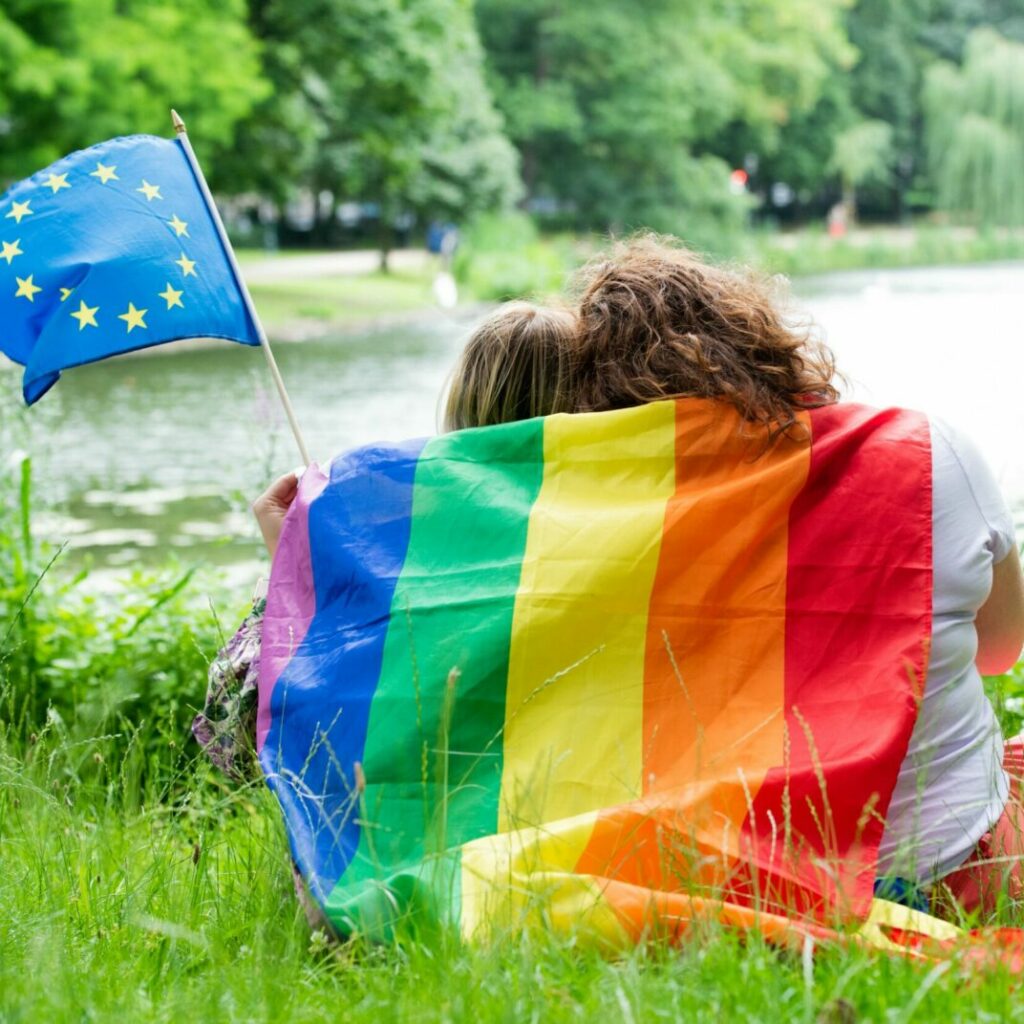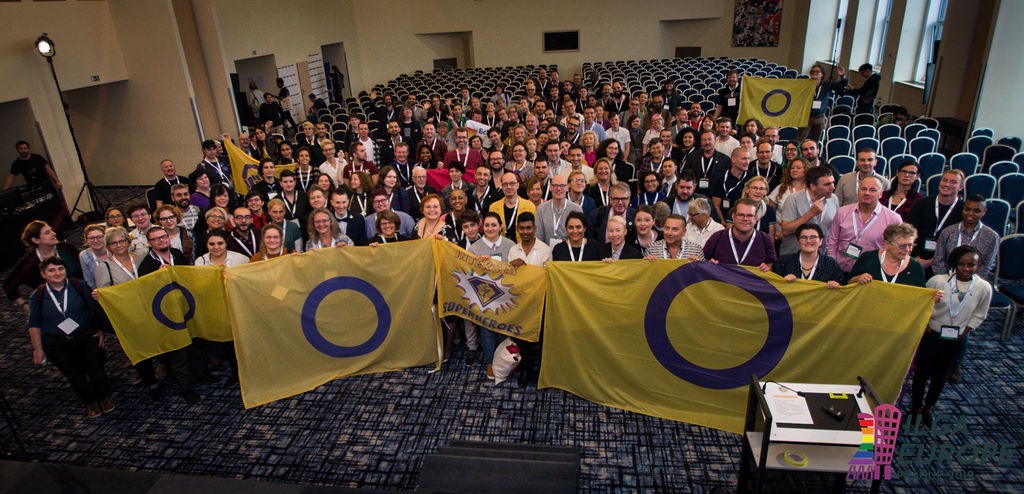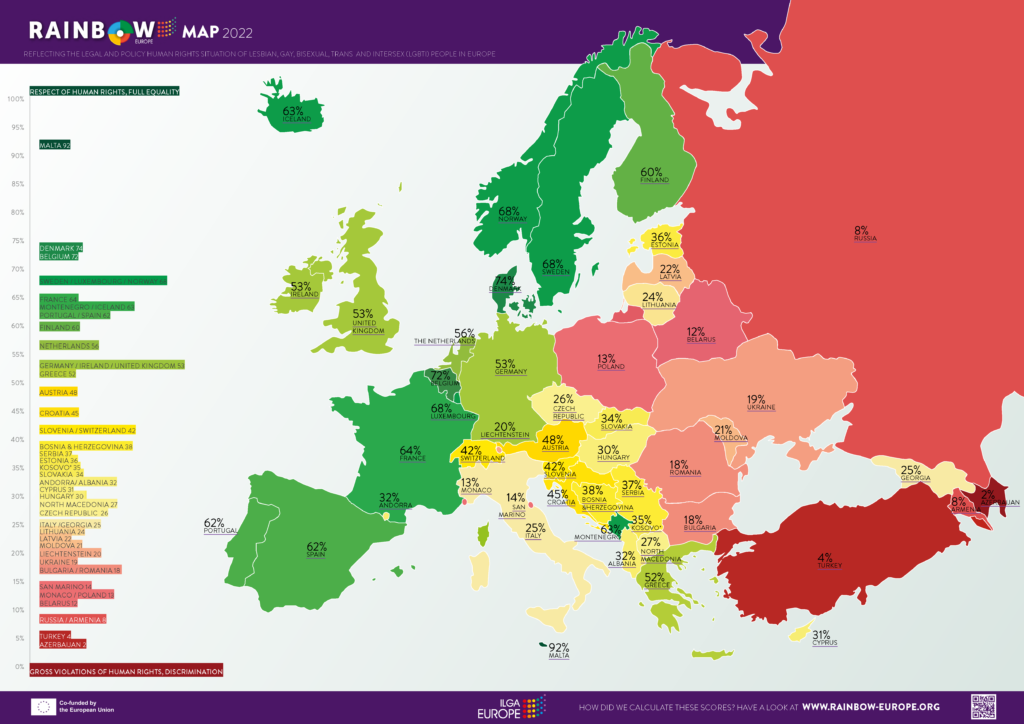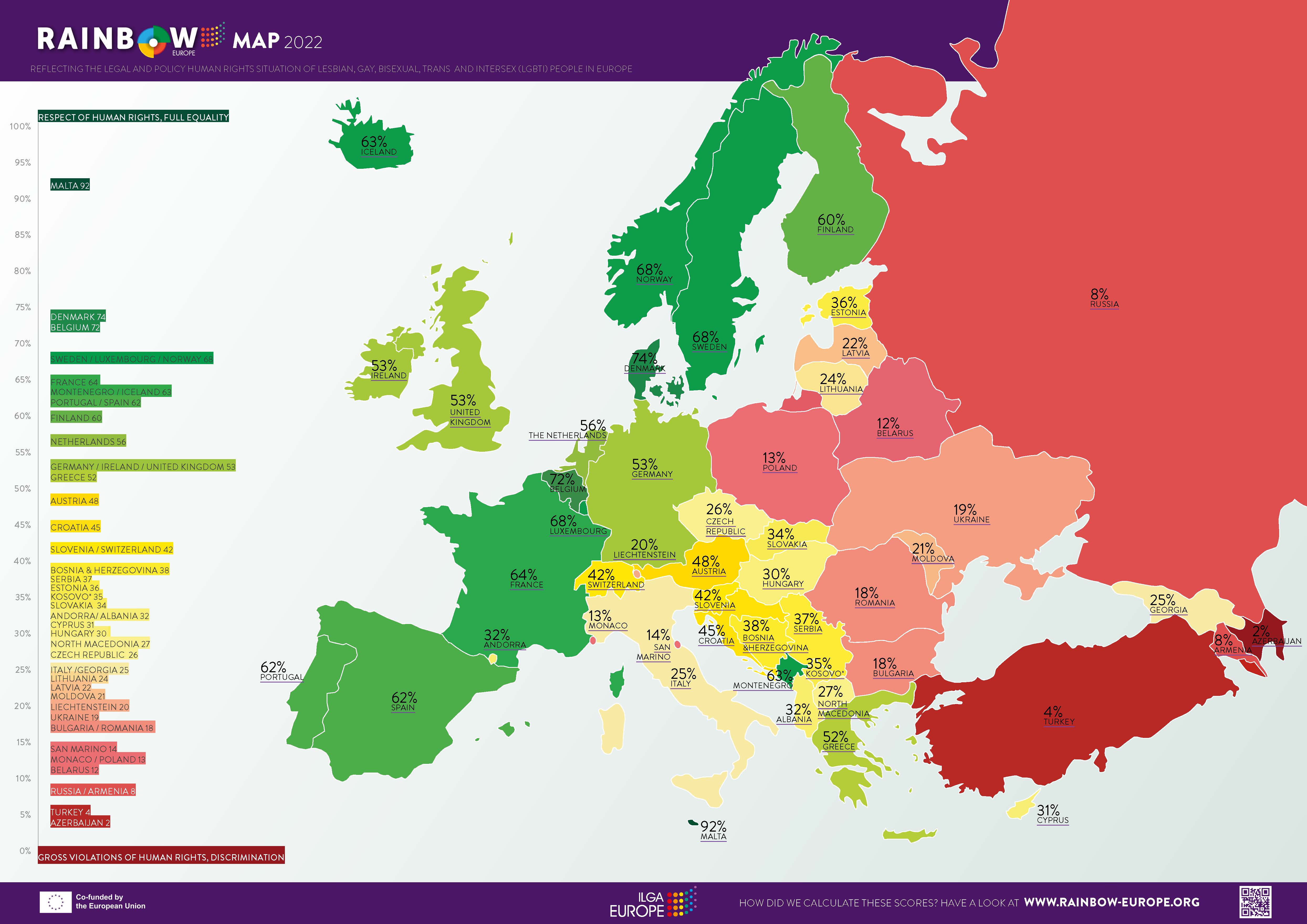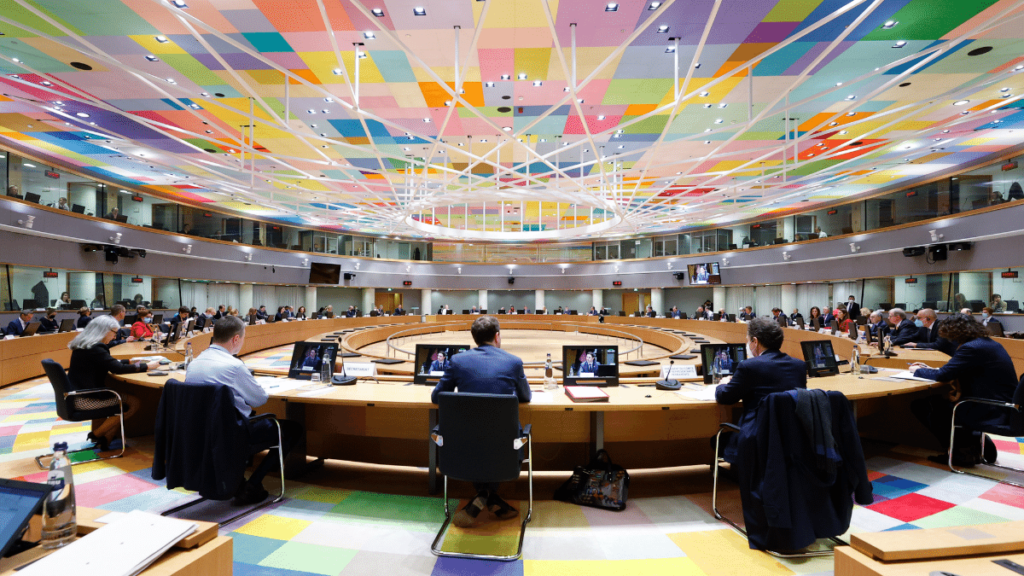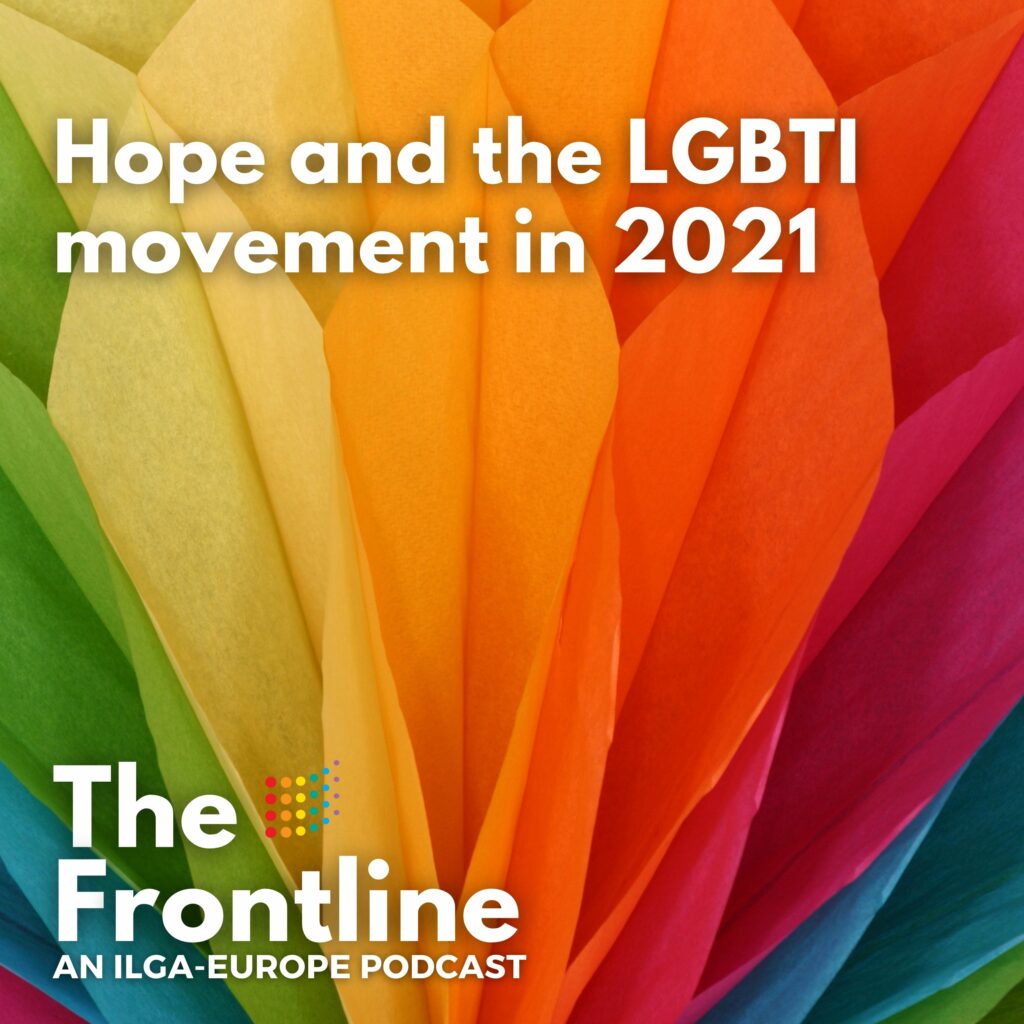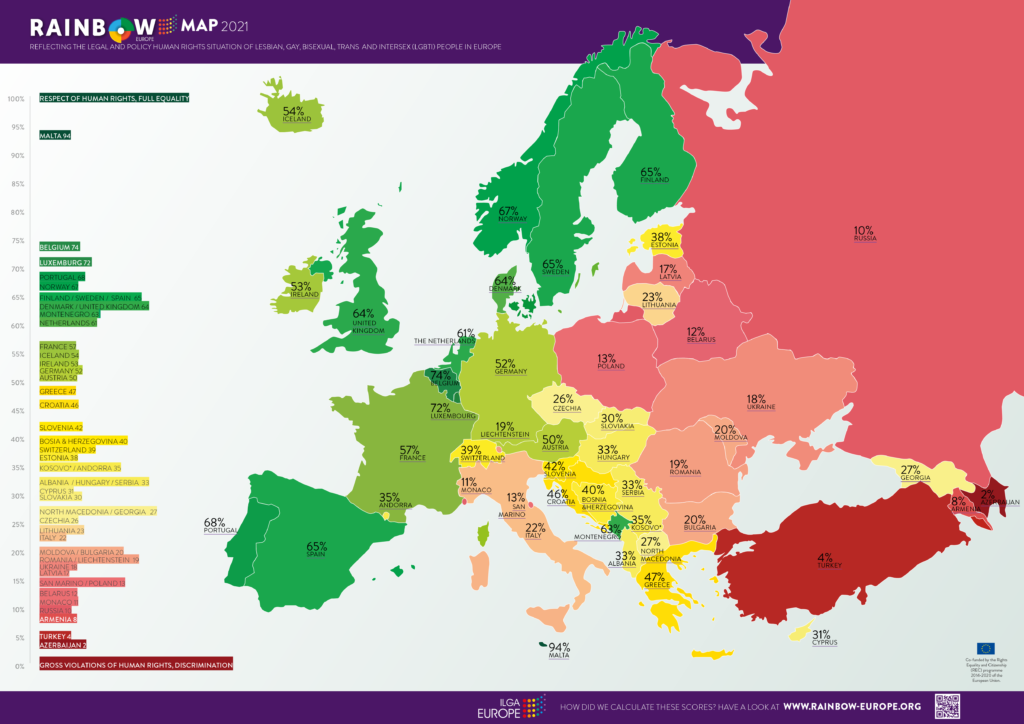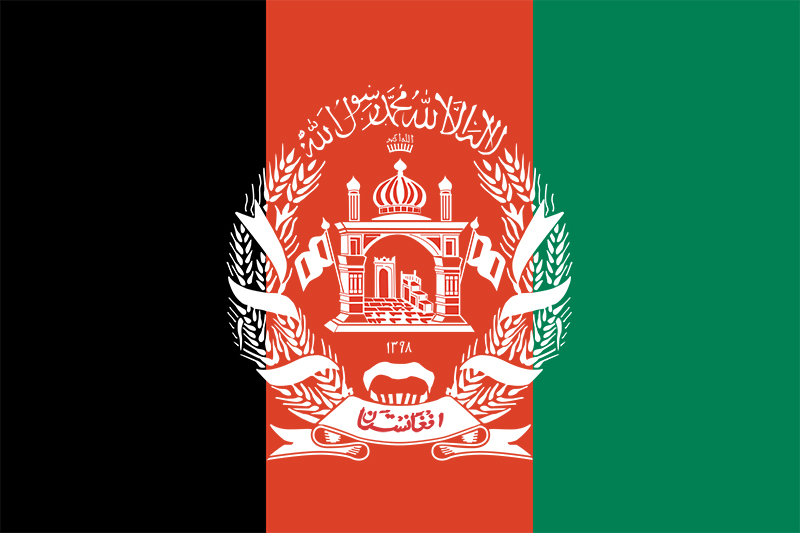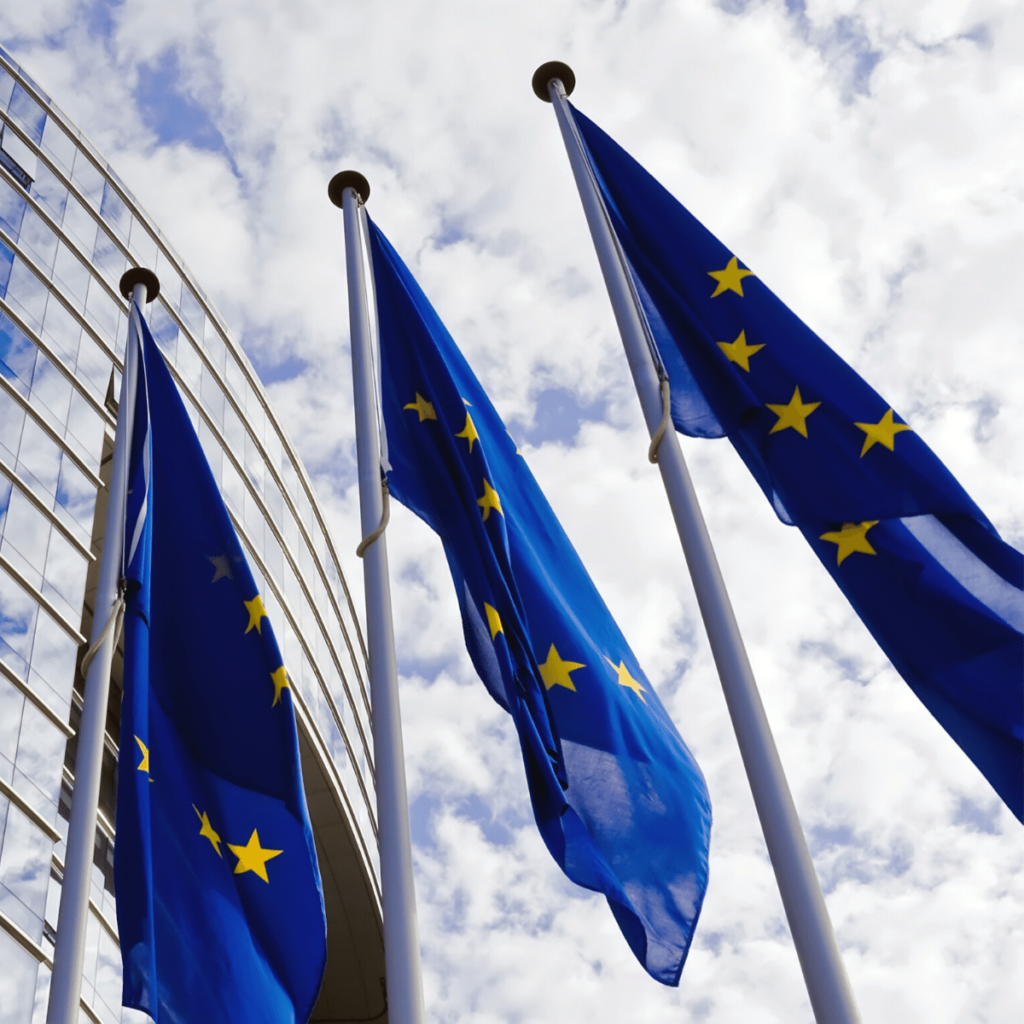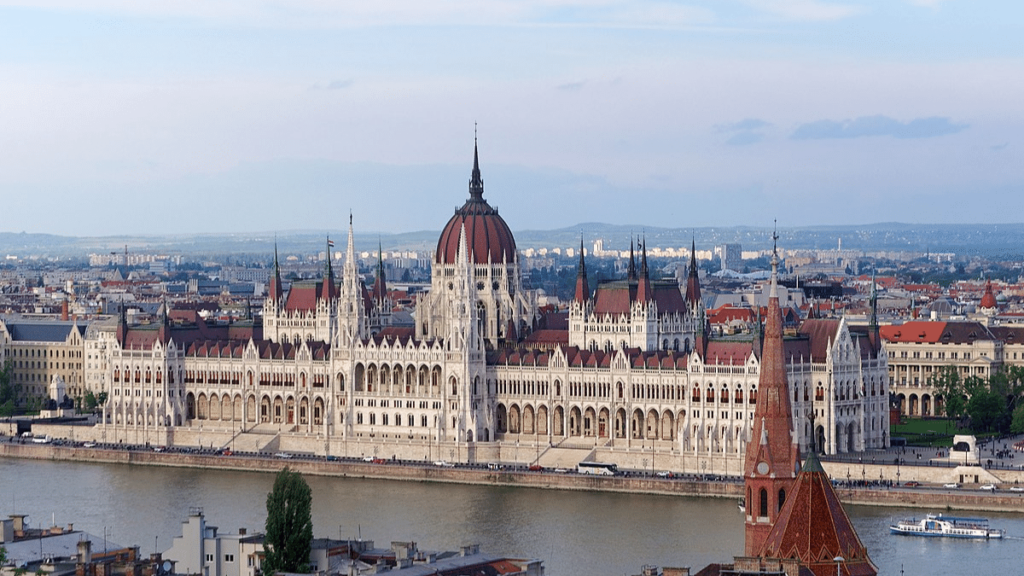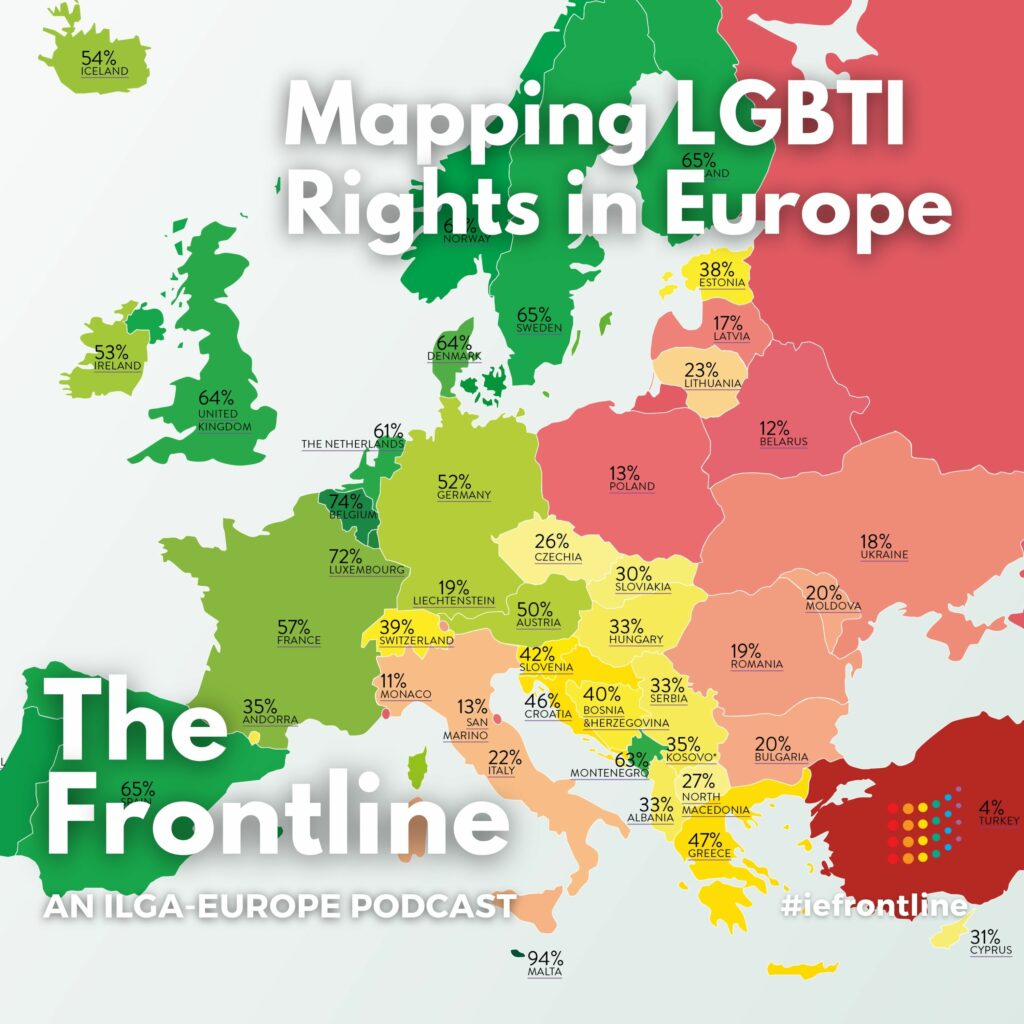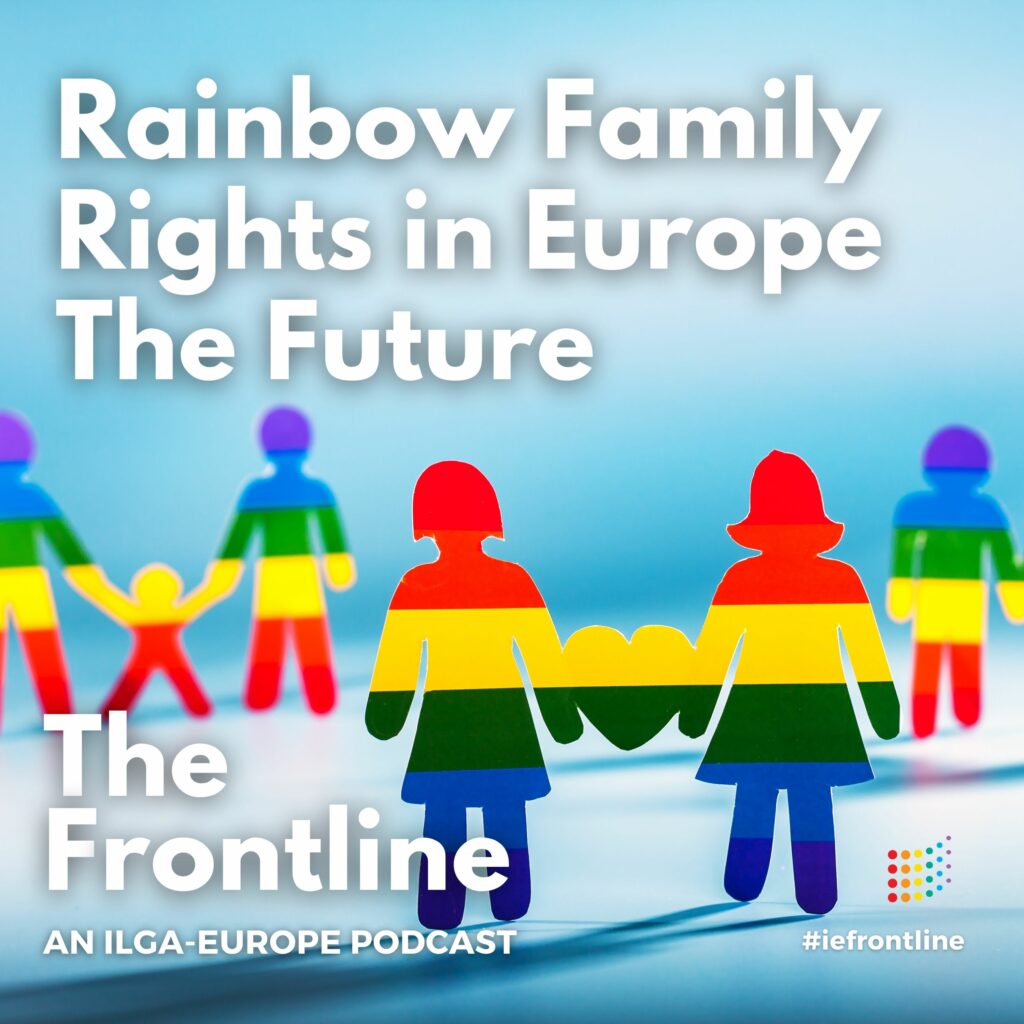Austria
Categories Score
The full bar chart stands for 100%, and is filled by the country category score. The colour display uses the traffic light palette, with Green representing a score closer to 100% and Red a score closer to 0%.
ASYLUM
This category looks into laws that expressly include SOGISC as a qualification criteria for seeking asylum. We also take into account other legislation, policies, instruction or positive measures by state actors that are related to asylum addressing the needs and rights of LGBTI asylum seekers and refugees.
Criteria Compliance Ratio
Each pie charts stands for a category and is divided in slices by criteria. When a country complies with a criteria – fully or in some regions – the slice is coloured.
Keep in mind the criteria have different weighting factor within a category; for example, the criteria Prohibition of medical intervention without informed consent (intersex) stands for half (2.5%) of the INTERSEX BODILY INTEGRITY category weighting factor (5%). Meaning that even if a country can only comply with this specific criteria within the category (1/4 total criteria) the category scores 50%.
More information on the categories and criteria weighting factors here.
Category & Criteria Table
The table lists detailed information and insights on legislation supporting each criterion status. Please use the filters for in-depth analysis.
n/a = not applicable, meaning the criteria didn’t exist in the previous Rainbow Map edition (PROGRESSION column)
- Complies
- Applicable in some regions only
- Does not Comply
RECOMMENDATIONS
In order to improve the legal and policy situation of LGBTI people in Austria, ILGA-Europe recommend:
- Prohibiting medical intervention on an intersex minor before child is able to give informed consent.
- Specifically including all SOGIESC (sexual orientation, gender identity, gender expression, sex characteristics) grounds in legislation prohibiting discrimination in goods and services in all regions.
- Banning conversion practices on the grounds of sexual orientation and gender identity.
Annual Review of AUSTRIA
In our Annual Review of the Human Rights Situation of LGBTI People in Europe and Central Asia, we examine the advances made and provide concrete examples of on-the-ground situations at national level country-by-country in the 12 months from January to December 2024.
Read our Annual Review of Austria below for more details and stories behind the Rainbow Map. You can also download the Annual Review chapter (.pdf) covering Austria.
-
In May, Manfred Haimbuchner, the leader of the Freedom Party of Austria (FPÖ) in Upper Austria, made remarks about gender diverse people as part of his opening speech at a 5,000-people party event. Haimbuchner mocked gender-diverse people and implied they do not belong in politics.
In September, the Freedom Party (FPÖ) won the parliamentary elections with 28.8% of the vote, making it the largest party for the first time. Led by Herbert Kickl, the FPÖ is staunchly opposed to what it terms the “transgender brainwashing” of society and seeks to stop taxpayer funding for what it calls “queer experiments”. Prior to the election, representatives of the party expressed a clear willingness to promote legislation enshrining a binary understanding of gender in the country’s constitution.
Three Austrian soccer players have been removed from the national team due to their participation in an anti-gay chanting incident. The incident, reported by Outsports, showed the players and staff chanting derogatory remarks that translate to “we are not little ass-loving violets.”
-
Starting in October, the “QueerFacts” training workshops will expand to Carinthia, Upper Austria, and Vorarlberg. Originally launched by the RosaLila PantherInnen association in collaboration with HOSI Vienna, HOSI Salzburg, VIMÖ, Verein Amazone, and INSIEME Kärnten, these workshops have been conducted in Styria, Salzburg, and Vienna. Their goal is to prevent extremism and sexism by fostering discussions on queer topics in educational institutions.
-
In July, six billboards by German artist Anne Imhof featuring the phrase “Wish You Were Gay” were vandalised in the city of Bregenz, where they were on public display. The billboards were part of an art project described as “a love song to queer coming- of-age”.
-
In February, Federal Chancellor and ÖVP leader Karl Nehammer proposed a ban on hormone treatments for patients under the age of 18 without medical justification. The ban was part of the ‘Austria Plan’ of reforms, intended to be implemented by 2030, which became part of the ÖVP manifesto for the national elections 2024. Civil society organisations expressed their disappointment in the proposal, asking the ÖVP to reject it in favour of more inclusive legislation. A group of CSOs responded to the proposal by addressing an open letter to Nehammer, denouncing the dangers of such measures and advocating for legislation that respects trans identities. The proposal has not gained significant traction yet.
In May the Vienna Labour and Social Court sentenced the social health insurance ÖGK to pay a share of the costs for a laser beard epilation for a trans woman. There was already a similar judgement in 2022, but the ÖGK refused to move forward with the payments as long as it was not sued. Nonetheless, since the ÖGK did not raise an objection against the decision, it will have no general validity and those concerned by the issue in the future will still have to face individual judicial proceedings to be awarded similar benefits.
The Ministry of Health issued an e-learning tool for healthcare professionals to support LGBTI-inclusive healthcare. The e-learning tool was developed by Gesundheit Österreich GmbH and was awarded the Pride Biz Research Prize, a biannual prize for outstanding research on LGBTIQ+ subjects in business and society.
-
The Association of Intersex People of Austria (VIMÖ) submitted an alternative report to the United Nations 8th Periodic Report of Austria by the Convention Against Torture (CAT). The report revealed that over 1,000 children and adolescents with variations of sex characteristics – corresponding specific DSD diagnoses – are discharged from hospitals annually. This means that a large number of these children can be expected to undergo operations classified as Intersex Genital Mutilation (IGM) every year.
VIMÖ was invited to speak in front of the Committee for Children’s Rights at the Federal Council alongside paediatric endocrinologist Dr. Stefan Riedl, who opposes a ban of IGM. After the hearing, the motion for a resolution titled “protect children’s rights of intersex children and adolescents – ban medically unnecessary operations” by the Federal Councillor Daniela Gruber-Pruner of the SPÖ and colleagues was discussed in the Council. Upon discussion, the motion was postponed by the governing parties, ÖVP and the Greens.
-
In March, Austria set up a compensation fund of 33 million euros to provide financial compensation to LGBTI people who faced prosecution because of their sexual orientation under the discriminatory provisions that remained in force until the early 2000s.
In May, the United Nations CAT advocated for legal measures to prohibit unnecessary medical treatments on intersex children, compensation for those affected, and the creation of counselling and support structures. These recommendations align with those formulated in 2015, which already called on Austria to protect intersex individuals from harmful interventions.
In September, GREVIO issued its evaluation report on combating violence against women in Austria, offering specific recommendations to the country. The report included a recommendation to gather data on “forced sterilisation,” in response to which Austria announced that the feedback would serve as a catalyst to gather data on the prevalence of forced sterilisations and forced abortions in the country.
The full Annual Review for 2025 is available here.



